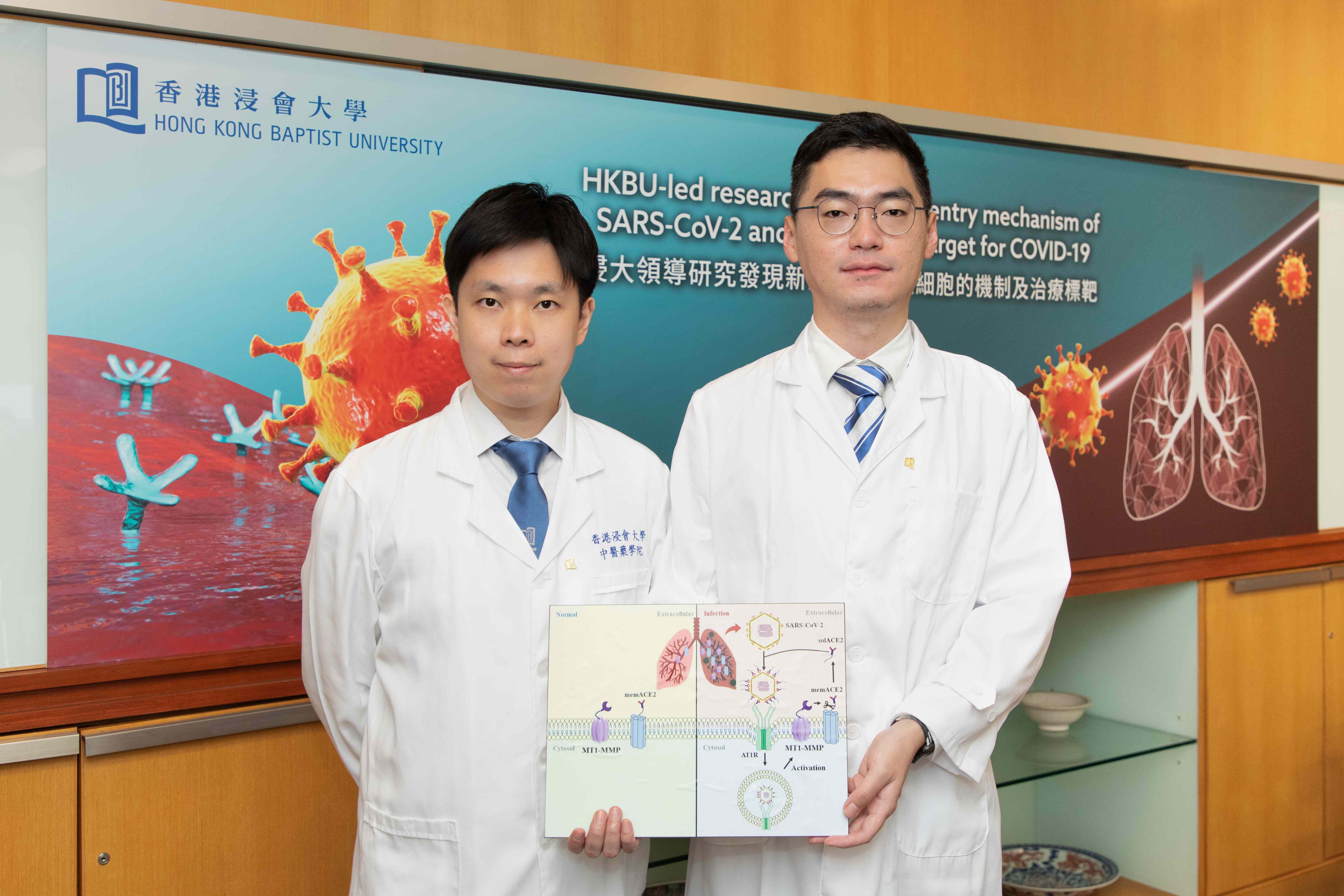Hong Kong Baptist University-led research unveils cell entry mechanism of SARS-CoV-2 and therapeutic target for COVID-19
- Written by Auzzi Shopping
HONG KONG SAR - Media OutReach - 20 March 2023 - A study led by scientists from Hong Kong Baptist University (HKBU) has identified a protease called MT1-MMP that is a major host factor behind the infectivity of the SARS-CoV-2 virus in the human body, which leads to the infection of COVID-19 and multi-organ failure.
By applying a humanised antibody called 3A2 that can inhibit the activity of MT1-MMP, the viral load of infected mice was reduced by almost 90%. The research team also demonstrated that the protease is a potential therapeutic target for COVID-19. 
The research findings have been published in the internationally renowned scientific journal Nature Communications.
ACE2 as a receptor for SARS-CoV-2 cell entry
Vaccination can protect people against COVID-19 and its potential complications, but it is not always effective in individuals with weak immune systems, or against some COVID-19 variants of concern. Thus, the development of a more effective treatment for COVID-19 remains a huge challenge in the post-vaccine era. Understanding the cell entry mechanism of SARS-CoV-2 is vital to curb the spread of the virus, and it will also aid the search for new COVID-19 treatments.
SARS-CoV-2 requires angiotensin-converting enzyme 2 (ACE2), a protein found on the membrane of human cells, as its receptor for cellular entry. Despite the lungs being the major organ affected by SARS-CoV-2 infection, only a small proportion of lung cells express ACE2.
Previous studies found that the infection of organs with low levels of ACE2 expression by SARS-CoV-2 is made possible by a soluble form of ACE2. The soluble ACE2 binds with SARS-CoV-2, carries the virus to cells with low levels of ACE2 expression, and facilitates its entry into the cells.
MT1-MMP mediates cell entry of SARS-CoV-2
A research team led by Dr Xavier Wong Hoi-leong, Assistant Professor of the Teaching and Research Division of the School of Chinese Medicine at HKBU, in collaboration with Dr Yuan Shuofeng, Assistant Professor of the Department of Microbiology at The University of Hong Kong, further studied how the physiological regulation of soluble ACE2 shedding contributes to the aetiology of COVID-19.
The team found that SARS-CoV-2 infection leads to the increased activation of MT1-MMP, a protease crucial for many physiological processes. MT1-MMP mediates the release of soluble ACE2 from ACE2-expressing cells. This soluble ACE2 in turn binds to the spike proteins of SARS-CoV-2 and carries it to the uninfected cells with low levels of ACE2 expression.
Notably, the team demonstrated that the introduction of human-soluble ACE2 enables SARS-CoV-2 to infect the lungs of a laboratory mouse strain (C57BL/6 mice) that is naturally insusceptible to SARS-CoV-2 infection due to the incompatibility of its mouse ACE2 and the viral spike proteins. The findings unveil the mechanism by which the virus hijacks host enzymes to enhance its infectivity, triggering multi-organ infections.
Antibody 3A2 blocks MT1-MMP activity
To study MT1-MMP's functions and how it affects viral infection, the researchers used human cells to create organoids, a 3D tissue structure grown in vitro to resemble and model different organs in the laboratory.
They discovered that blocking MT1-MMP activity with the monoclonal antibody 3A2 effectively depleted soluble ACE2 levels and reduced the degree of infection of SARS-CoV-2 in human lung, heart and liver organoids by 60-80%. Consistent results were obtained using the original strain of SARS-CoV-2, as well as variants of concern, such as Delta and Omicron. The results demonstrate that MT1-MMP is a major host factor that mediates the cell entry of SARS-CoV-2, and that it is also a potential therapeutic target for COVID-19 drugs.
The researchers further tested the effects of applying 3A2 in a mouse COVID-19 model. A group of 11 mice were treated with either 3A2 or vehicle controls. Older mice were used in the experiment as old age is a major risk factor for severe symptoms and mortality for COVID-19. The results show that 3A2 reduced the viral load of SARS-CoV-2 by almost 90% and dramatically alleviated lung tissue damage resulting from infection.
MT1-MMP as a therapeutic target
Dr Wong said: "Two major challenges when it comes to developing COVID-19 drugs are how to enhance treatment results for patients with weakened immune systems, and how to maintain the drugs' effectiveness across different viral strains. 3A2 has good potential to become an effective drug for curing COVID-19 because it antagonises the activity of MT1-MMP, instead of boosting the immunity of patients or acting directly on the virus.
"Our previous studies have demonstrated that 3A2 also offers protection against obesity and diabetes, two major risk factors for severe symptoms and mortality for COVID-19. Therefore, 3A2 could be particularly suitable for high-risk groups, including older adults and people with metabolic disorders. It could also be effective against emerging coronaviruses in the future, because ACE2 is a doorway for many such viruses with similar cell entry mechanisms. Further research and experiments on 3A2 are required before it can be applied in humans."
Hashtag: #HKBU
The issuer is solely responsible for the content of this announcement.




























